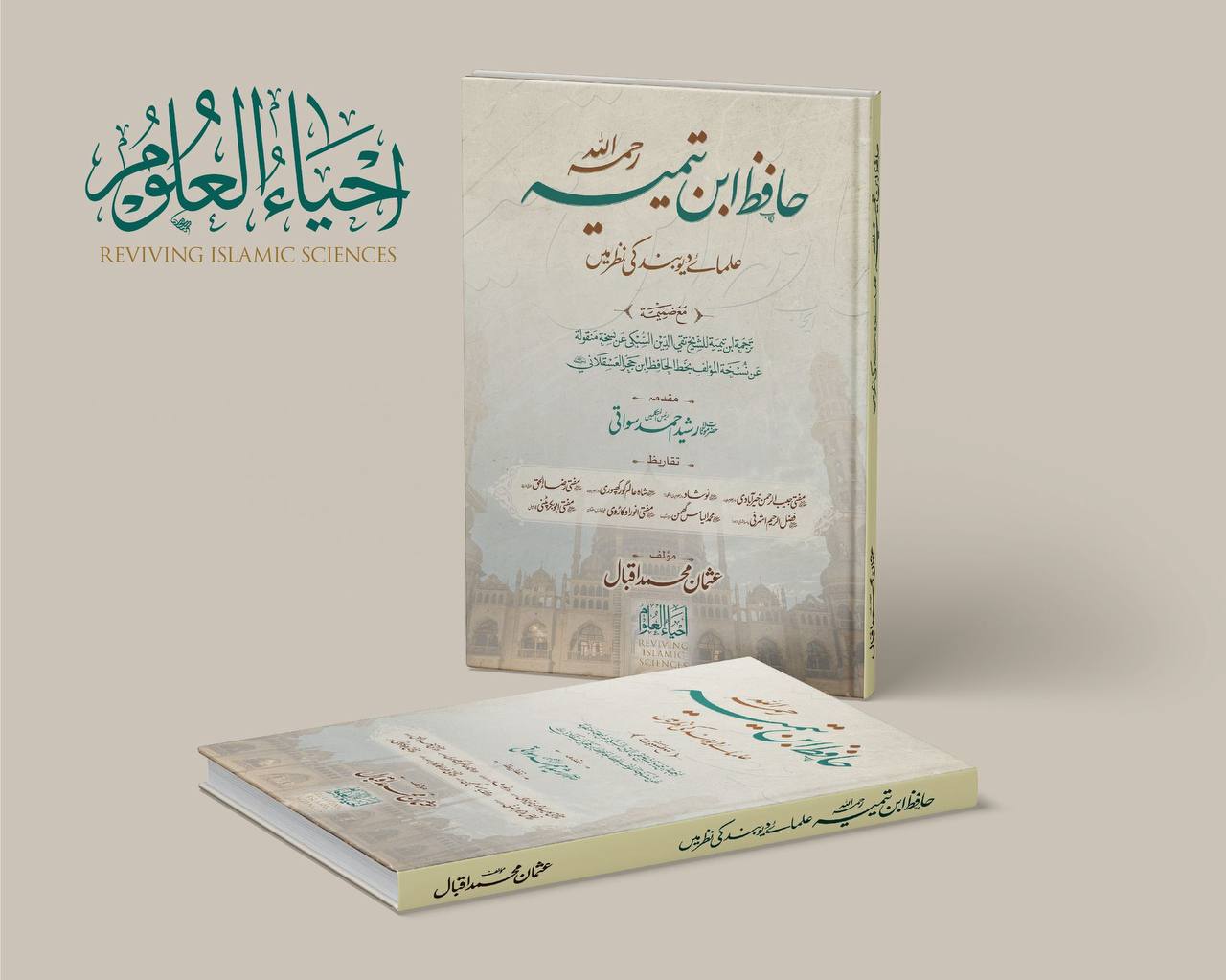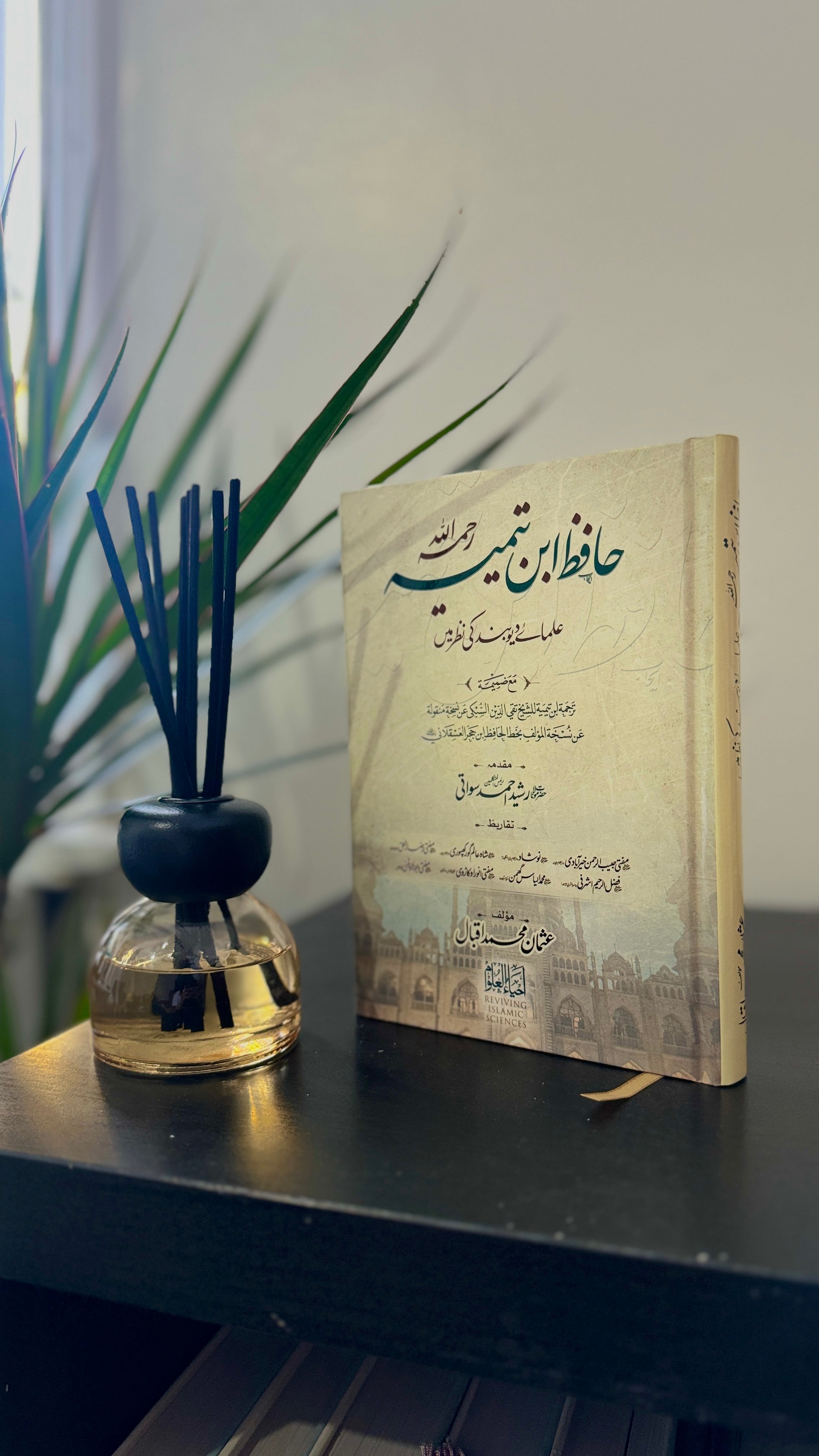
Disclaimer
Note: This is only a brief excerpt from the broader discussion on the topic. The complete and detailed version is currently in progress and will be completed Inshā’Allāh.
The Issue of Tawassul
Preface:
Before addressing the issue in detail, it is important to clarify a few preliminary points:
The Linguistic and Islamic (Shar‘i) Definition of Tawassul
1.
ٱلْوَسِيلَةُ هِيَ فِي ٱلْأَصْلِ مَا يُتَوَصَّلُ بِهِ إِلَى ٱلشَّيْءِ وَيُتَقَرَّبُ بِهِ
Wasilah (intercession or means) in its Asl (essence or original sense) refers to something through which one seeks to attain a desired objective or to attain closeness to it.
(An-Nihāyah fī Gharīb al-Athar - Ibn al-Athīr al-Jazarī, Volume 5, Page 402)
2.
It is stated in Misbah al-Lughat:
“Al-Wasilah”- A means of attaining closeness.
(Miṣbāḥ al-Lughāt, Number 946)
3.
Ḥakīm al-Ummah Ḥaḍrat Thānawī (raḥimahu Allāh) says:
“Tawassul” in the language refers to seeking closeness and nearness.
As mentioned in the Holy Qur’ān
﴿وَابْتَغُوا إِلَيْهِ الْوَسِيلَةَ﴾
“Seek a means of closeness to Allāh”
(Malfūẓāt Ḥakīm al-Ummat, Volume 25, Page 123)
Shar‘ī (Legal/Islamic) Meaning
In the Sharī’ meaning, the term Tawassul is applied to the following forms:
1.)
Tawassul through Duʿāʾ(Supplication):
التوسل --- بدعاء الرجل الصالح الحي الموجود فتقول يا شيخ ادع الله لى ونحو ذلك، كما استسقى الصحابة برسول الله
Tawassul refers to seeking the supplication of a righteous, living person — for example, saying:
“O Shaykh, pray to Allāh for me,” and similar expressions. This is just as the Companions (raḍiya llāhu ʿanhum ) sought the Messenger (ﷺ)’s supplication for rain.
(At-Tawassul al-Mashrūʿ wa al-Mamnūʿ : ṣafḥah 17)
2.)
Tawassul through Actions:
هو التقرب إلى الله تعالى بطاعته وعبادته واتباع أنبيائه ورسله وبكل عمل يحبه الله ويرضاه.
It refers to seeking closeness to Allāh Ta‘ālā through obedience to Him, acts of worship, following His prophets and messengers, and through every deed that Allah loves and is pleased with.
(At-Tawassul ilā Ḥaqīqat al-Tawassul li-Muḥammad Nasīb al-Rifā‘ī : Page 13)
2.)
Tawassul through a Person (Tawassul bi’l-Dhāt):
وَأَنْ يَتَوَسَّلَ بِالنَّبِيِّ ﷺ وَبِأَحَدٍ مِنَ الأَوْلِيَاءِ العِظَامِ جَائِزٌ، بِأَنْ يَكُونَ السُّؤَالُ مِنَ اللّٰهِ تَعَالَى وَيَتَوَسَّلَ بِوَلِيِّهِ وَنَبِيِّهِ ﷺ
(Imdād al-Fatāwā, Vol. 6, p. 327)
Translation:
It is permissible to make tawassul through the Prophet ﷺ or through one of the great saints, on the condition that the supplication is made directly to Allah Almighty, and the Prophet ﷺ or the saint is mentioned as a means of nearness to Him.
In other words, one asks Allāh Ta‘ālā alone, but seeks His favour by mentioning His beloved Prophet ﷺ or a pious servant as a wasīlah (means).
Considering the three aforementioned types, the Shar‘i definition of Tawassul is as follows:
وَالتَّوَسُّلُ شَرْعًا هُوَ التَّقَرُّبُ إِلَى اللّٰهِ تَعَالَى بِدُعَاءِ النَّبِيِّينَ وَالصَّالِحِينَ وَالأَوْلِيَاءِ وَشَفَاعَتِهِمْ، وَبِكُلِّ عَمَلٍ يُحِبُّهُ اللّٰهُ وَيَرْضَاهُ مِنْ عِبَادَتِهِ كَالصَّلَاةِ وَالزَّكَاةِ وَالصِّيَامِ وَغَيْرِ ذٰلِكَ، وَكَذٰلِكَ بِاتِّبَاعِ أَنْبِيَائِهِ وَرُسُلِهِ، أَوْ بِجَاهِ النَّبِيِّينَ وَالصَّالِحِينَ وَحُرْمَتِهِمْ وَبَرَكَتِهِمْ وَحَقِّهِمْ عَلَى اللّٰهِ، فِي حَيَاتِهِمْ أَوْ بَعْدَ وَفَاتِهِمْ.:
Translation:
The Sharī‘ definition of tawassul refers to seeking closeness to Allāh Ta‘ālā —whether through requesting the supplication and intercession of the Prophets, the righteous, and the saints; or through any action that Allāh Ta‘ālā loves and is pleased with, such as acts of worship like prayer, zakāh, fasting, and others; or through following His Prophets and Messengers.
It also includes seeking closeness by mentioning the status (jāh), sanctity (ḥurmah), blessing (barakah), or honor (ḥaqq) of the Prophets and the righteous—whether during their lifetime or after their passing.
Benefit
Among the three types of tawassul, both tawassul through supplication (duʿā’) and tawassul through righteous actions are unanimously accepted by Ahl al-Sunnah wa’l-Jamāʿah as well as by the opposing group (i.e., the Mamātīs and the non-muqallidīn).
However, tawassul through a person (dhāt) is affirmed by Ahl al-Sunnah wa’l-Jamāʿah, while the opposing group denies its validity.
What follows is a presentation of the respective positions of Ahl al-Sunnah wa’l-Jamāʿah and their opponents on this matter.
The Position of Ahl al-Sunnah wa’l-Jamāʿah
ʿAllāmah Taqī al-Dīn ʿAlī ibn ʿAbd al-Kāfī ibn ʿAlī al-Subkī al-Shāfiʿī (d. 756 AH) writes:
“إِنَّ التَّوَسُّلَ بِالنَّبِيِّ ﷺ فِي كُلِّ حَالٍ قَبْلَ خَلْقِهِ وَبَعْدَ خَلْقِهِ فِي مُدَّةِ حَيَاتِهِ فِي الدُّنْيَا وَبَعْدَ مَوْتِهِ فِي مُدَّةِ الْبَرْزَخِ.”
(شفاء السقام للسبكي : ص ٣٥٨)
Translation:
“Tawassul through the Prophet ﷺ is permissible in every condition—before his creation, after his creation, during his worldly life, and after his death in the intermediary realm (Barzakh).”
ʿAllāmah Aḥmad ibn Muḥammad al-Qusṭalānī al-Shāfiʿī (d. 923 AH) states:
“وَيَنْبَغِي لِلزَّائِرِ أَنْ يُكْثِرَ مِنَ الدُّعَاءِ وَالتَّضَرُّعِ وَالاِشْتِغَاثَةِ وَالتَّشَفُّعِ وَالتَّوَسُّلِ بِالنَّبِيِّ ﷺ.”
(المواهب اللدنية : ج ٣ ص ٤١٧، الفصل الثاني في زيارة قبره الشريف الخ)
Translation:
“It is incumbent upon the visitor to frequently supplicate, beseech, seek help, intercede, and perform tawassul through Allah’s Prophet ﷺ.”
Shāh Walīullāh al-Muḥaddith al-Dihlawī (d. 1176 AH) says:
“وَمِنْ أَدَبِ الدُّعَاءِ تَقْدِيمُ الثَّنَاءِ عَلَى اللَّهِ وَالتَّوَسُّلُ بِنَبِيِّ اللَّهِ لِيُسْتَجَابَ.”
(حجۃ اللہ البالغة ج ٢ ص ٦)
Translation:
“Among the etiquettes of supplication is to begin with praise ofAllāh Ta‘ālā and to seek tawassul through the Prophet ofAllāh Ta‘ālā so that the prayer may be accepted.”
The Deobandi Scholars’ Position on Tawassul in al-Muhannad ʿala al-Mufannad
In the consensus-based and representative treatise of the Deobandi scholars, al-Muhannad ʿala al-Mufannad, the third and fourth questions deal specifically with the issue of tawassul.
The unified position of the scholars of Deoband is presented in these questions and answers:
السُّؤَالُ الثَّالِثُ وَالرَّابِعُ:
هَلْ لِلرَّجُلِ أَنْ يَتَوَسَّلَ فِي دَعَوَاتِهِ بِالنَّبِيِّ ﷺ بَعْدَ الْوَفَاةِ أَمْ لَا؟ أَيَجُوزُ التَّوَسُّلُ عِنْدَكُمْ بِالسَّلَفِ الصَّالِحِينَ مِنَ الْأَنْبِيَاءِ وَالصِّدِّيقِينَ وَالشُّهَدَاءِ وَأَوْلِيَاءِ رَبِّ الْعَالَمِينَ أَمْ لَا؟
الْجَوَابُ:
عِنْدَنَا وَعِنْدَ مَشَايِخِنَا يَجُوزُ التَّوَسُّلُ فِي الدَّعَوَاتِ بِالْأَنْبِيَاءِ وَالصَّالِحِينَ مِنَ الْأَوْلِيَاءِ وَالشُّهَدَاءِ وَالصِّدِّيقِينَ فِي حَيَاتِهِمْ وَبَعْدَ وَفَاتِهِمْ، بِأَنْ يَقُولَ فِي دُعَائِهِ: اللَّهُمَّ إِنِّي أَتَوَسَّلُ إِلَيْكَ بِفُلَانٍ أَنْ تُجِيبَ دَعْوَتِي وَتَقْضِيَ حَاجَتِي.
(al-Muhannad ʿala al-Mufannad, pp. 36–37)
Translation:
Question 3 & 4:
Is it permissible for a person to seek tawassul in his supplications through the Prophet ﷺ after his passing? In your opinion, is it allowed to seek tawassul through the righteous predecessors from among the Prophets, the companions, the martyrs, and the saints of Allāh Ta‘ālā?
Answer:
According to us and our elders, it is permissible to seek tawassul in supplication through the Prophets, the righteous saints (awliyā’), the martyrs, and the Siddiqīn—both during their lifetimes and after their demise. One may say in his prayer: “OAllāh Ta‘ālā! I seek a means to You through so-and-so that You accept my supplication and fulfill my need.”
Statement of Ḥakīm al-Ummah Mawlānā Ashraf ʿAlī Thānawī (d. 1362 AH):
وَالثَّالِثُ دُعَاءُ اللّٰهِ بِبَرَكَةِ هٰذَا الْمَخْلُوقِ الْمَقْبُولِ، وَهٰذَا قَدْ جَوَّزَهُ الْجُمْهُورُ.
(Bawādir al-Nawādir, p. 708)
Translation:
The third form of tawassul is to supplicate to Allāh Ta‘ālā through the barakah (blessing) of a beloved and accepted servant of His. This has been deemed permissible by the majority (jumhūr) of scholars.
Therefore, according to Ahl al-Sunnah wa’l-Jamāʿah, seeking tawassul through a Prophet or a saint in duʿā is not only permissible, but recommended, closer to being answered, and among the etiquettes of supplication.
Explore Our Recent Insights
Dive deeper into Islamic knowledge and teachings.









